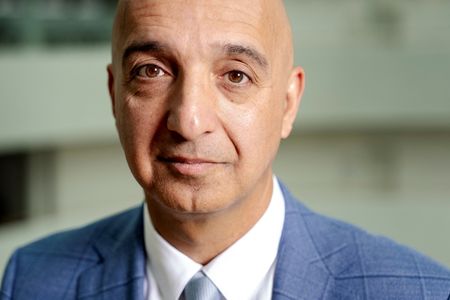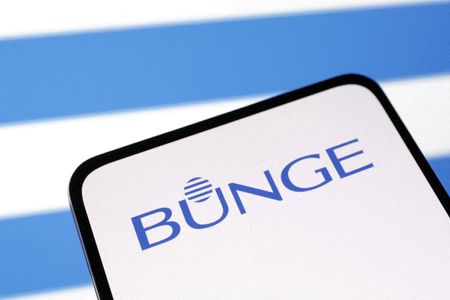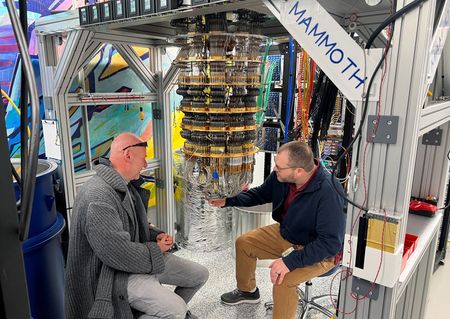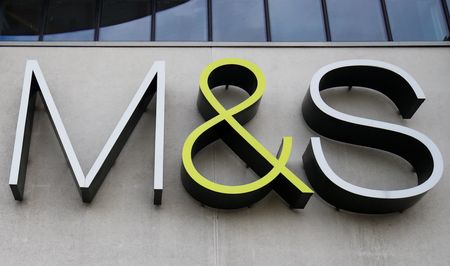By Jacob Gronholt-Pedersen, Maggie Fick and Bhanvi Satija
COPENHAGEN (Reuters) -Wegovy-maker Novo Nordisk trimmed its full-year profit and sales forecasts on Wednesday as sales growth slows, but investors cheered a better-than-expected Medicare pricing deal that helped lift the shares after an initial slide.
Novo is going through a tumultuous period marked by a share price plunge and slowing sales growth, which have prompted a change of CEO and a board shake-up. It’s also in a bidding war with U.S. rival Pfizer for biotech Metsera.
CEO Mike Doustdar, who took the helm in August and is driving a turnaround plan, is trying to claw back lost ground in a fiercely competitive obesity drug market against U.S. rival Eli Lilly, which posted far stronger results last week.
Doustdar said on a media call that Novo was working to expand its direct-to-consumer sales in the U.S. and was confident it would beat Pfizer in acquiring obesity drug developer Metsera.
MEDICARE PRICING ‘BETTER THAN FEARED’
Novo said its guidance cut – the fourth this year – was due to a weaker growth outlook for the firm’s blockbuster treatments Wegovy and Ozempic for weight loss and diabetes.
But Novo also said it had agreed pricing for semaglutide – the active ingredient in the two drugs – under the U.S. Medicare scheme, addressing a major uncertainty for investors worried that the Trump administration would take a tough line in talks.
Novo did not disclose the agreed price, but said that if applied this year it would have had a “low-single-digit negative impact on sales”.
JP Morgan analysts estimated this could equate to around a 6 billion Danish crown ($937 million) hit to sales, adding that was “better than feared” and could offset the negative news from the guidance cut.
“The shares could ultimately be in positive territory today,” they wrote in a note. The shares were up 1% by 1100 GMT after a sharp initial drop.
THE RISE AND FALL OF NOVO NORDISK
Fuelled by the rapid take-up of Wegovy, the first in a new class of drugs called GLP-1 receptor agonists, Novo became Europe’s most valuable firm last year. But sales growth has slowed sharply amid competition from Eli Lilly and compounded copycat drugs made from the same ingredients as branded drugs.
Novo’s market value peaked in June 2024 at around $650 billion, but has since fallen by about 70%, close to its value around Wegovy’s launch in 2021.
Novo now expects full-year operating profit – measured in local currencies – to grow between 4% and 7%, down from 4%-10% previously. It trimmed its outlook for 2025 sales growth to between 8% and 11%, compared with its previous 8%-14% range.
The company expects sales growth to slow further in the fourth quarter, after growing at the slowest pace since early 2022 in the third quarter at 11%, just shy of 11.4% estimates.
Mikael Bak, head of the Danish Shareholders’ Association which has 17,000 members – a majority of them invested in Novo – said the third-quarter update was not a surprise, but it was “nevertheless a disappointment”.
“We support the transformation process now underway and view this as a moment for patience, focus, and disciplined execution,” he added.
AN UNDERWHELMING QUARTER BUT FOCUS ON US PRICES
UBS analysts said investors would be disappointed by the magnitude of the guidance cut and the growth outlook.
Novo warned that unlawful mass compounding – copycat drugs custom-made from the same ingredients as branded drugs – continued in the third quarter.
Sales of Wegovy rose 18% year-on-year in the period to 20.4 billion crowns, versus analysts’ forecasts of 20.9 billion. Weekly prescriptions in the U.S. for Wegovy had fallen by 10,000 over the last three months to around 270,000, the company said.
Operating profit fell 30% to 23.7 billion crowns, below the expected 24.6 billion crowns.
($1 = 6.4029 Danish crowns)
(Reporting by Jacob Gronholt-Pedersen and Maggie Fick. Editing by Tomasz Janowski and Mark Potter)








